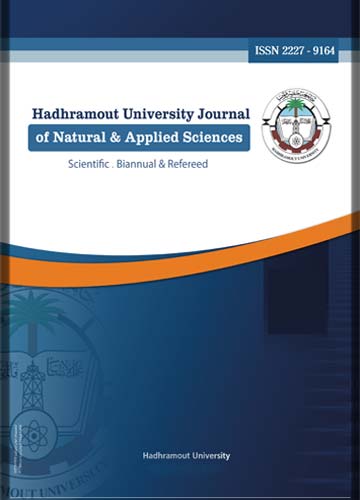The Determinants and Knowledge of Iron Deficiency Anemia and its Impact among Pregnant Women Attending University Hospital in Mukalla, Yemen
Keywords:
Determinants, Impact, Iron deficiency anemia, Knowledge, YemenAbstract
The prevalence of anemia among pregnant women, according to the World Health Organization (WHO),
is still higher than 51% in developing countries, and the most common cause is iron deficiency, which has adverse
effects on maternal and child health. The purpose of this study is to determine the knowledge and attitude of
pregnant women attending University Hospital in Mukalla regarding iron deficiency anemia and its impact. A cross
sectional descriptive study was conducted on 320 Yemeni pregnant women from January 1, 2021, to June 30, 2021.
Data was collected by a predesigned self-administered questionnaire in the antenatal clinic at the time of the routine
antenatal check-up. The results showed that the mean age of participants was 26.8 ±1.73 years. The prevalence of
iron deficiency anemia was high (81%). (23.4%) of the participants know that anemia in pregnancy is present when
the hemoglobin concentration is 11 g/dl or less. Most of the participants (72.2%) know that anemia may affect the
health of the fetus and cause complications for the mothers. Only (16.6%) of them know that iron tablets are free of
cost in primary health care centers and government hospitals. (85.3%) of them know that iron tablets should be
taken during pregnancy in spite of a healthy diet. (23.1%) of the participants took iron supplementation irregularly
due to drug cost (32.8%). Only (20%) of them get information regarding anemia from health workers. Anemia was
statistically lower in pregnant women with regular intake of iron supplements and those taking special diets during
pregnancy. The prevalence of anemia in women who attend University Hospital during pregnancy is higher. There
is poor knowledge among participants about the preventive measures for iron deficiency anemia. Improving health
education about anemia during pregnancy can reduce the prevalence of anemia and improve maternal and fetal
outcomes.




